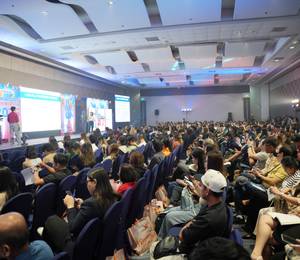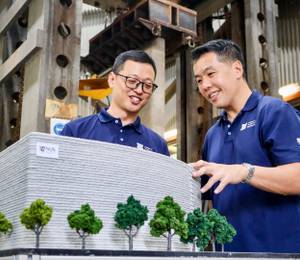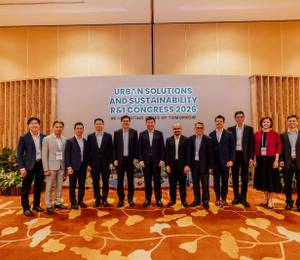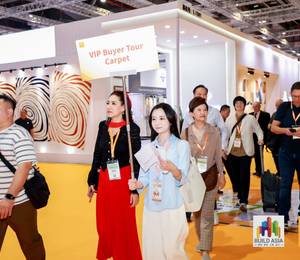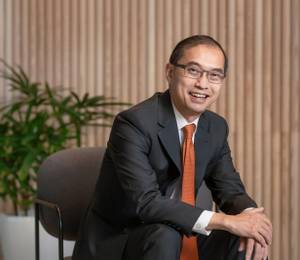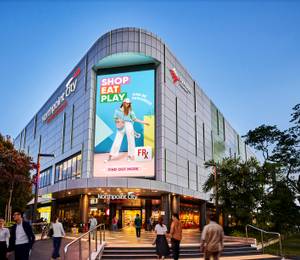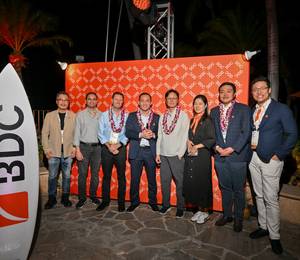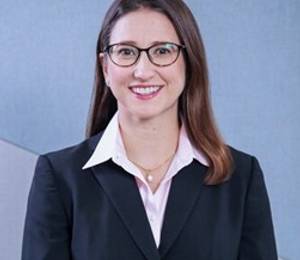International multi-disciplinary engineering and sustainability consultancy, Cundall, appointed Matt Carlisle earlier this year as Sustainability Associate Director to lead the service and drive the business’ net zero commitment in the Asia region.
With a strong background in energy efficiency and a Master of Science, specialising in Sustainable Energy Systems, Matt’s wealth of knowledge in decarbonisation of buildings and organisations will enhance Cundall’s sustainability offerings to deliver innovative and reliable solutions that enable our clients to achieve their sustainable ambitions.
Before joining Cundall, Matt was an Associate Director at XCO2 in Singapore, helping to establish the office and develop the business in the market.
During his time in Singapore, he has also successfully delivered numerous energy and sustainability strategy projects in the Asia-Pacific hospitality sector, including Genting Secret Garden masterplan in China, Inspire Entertainment Resort in South Korea, and Rah Falhu Hurraa in Maldives. In addition, he previously worked in the United Kingdom as a Project Manager delivering large-scale district energy and photovoltaic farm projects.
In his new role with Cundall, Matt is responsible for leading the sustainability team in Asia and working closely with our clients and stakeholders to develop and implement sustainable designs and strategies. He will also collaborate with our clients and our staff to accelerate the implementation of Cundall’s Zero Carbon Design 2030 initiative and continuously drive the global business commitment to create a more sustainable built environment.
In this interview with SEAB, Matt reveals how he plans to drive net zero commitment in the region.
Q: Tell us about your expertise?
A: My expertise spans across decarbonisation strategy, circular economy planning, passive and low carbon design, embodied carbon reduction, as well as district energy connection system design. With over 15 years of experience in delivering projects in Southeast Asia, the UK, and Australia, I have a holistic understanding of the sustainability needs and challenges in the Asia market. By leveraging my international experiences and practices, I have learned that my Asia clients very much prefer to have effective design solutions tailored to their challenges.
Q: In your new role, you will be responsible for leading the sustainability team in Asia and working closely with Cundall’s clients and stakeholders to develop and implement sustainable designs and strategies. Can you elaborate on some of these sustainable designs and strategies?
A: Since many of our clients and stakeholders are committed to a net zero target, we are seeing more demand and focus on implementing sustainability strategies that can help them achieve those targets. These strategies will put an emphasis on decarbonising their existing assets and reducing the carbon emission of their new developments. Our team will leverage a whole lifecycle carbon approach to ensure we are helping to reduce their carbon emissions as much as possible during all stages of the assets’ lifecycle.
Q: You will also be working with Cundall’s clients and its staff internally to implement Cundall’s Zero Carbon Design 2030 initiative and continuously drive the global business commitment in the region to create a more sustainable built environment. Could you share more details on the Cundall’s Zero Carbon Design 2030 initiative and what Cundall has achieved within this initiative?
A: Zero Carbon Design 2030 (ZCD2030) is a global initiative that aims to engage everyone at Cundall – every office, every discipline, every level – to help our clients to achieve their net zero carbon goals. It is embedded as one of our core pillars and is a non-negotiable part of our strategy.
To achieve our ZCD2030 goals and targets we are hosting workshops and activities to inspire everyone in Cundall to collaborate, learn, share and support our people, our clients and our industry to deliver buildings and infrastructure with the lowest possible carbon footprint. We have 10 core team members, each from a different discipline, who will be driving the direction of this ZCD2030 initiative and providing their expert advice to our advocates who will be leading their disciplines in executing the zero carbon projects.
To help our clients to achieve the net zero target, we have implemented a structured 7-step approach to achieving net zero on projects and are sharing the knowledge with our clients and the wider industry. In terms of contractor engagement, Cundall takes a proactive approach. For instance, when we develop an Environmentally Sustainable Design (ESD) strategy for a project, we provide coaching and guidance to the delivery team, including the contractor or subcontractor, on how to effectively execute the sustainability measures.
Q: Not all sustainable buildings are the same in the region as countries differ in economic development, technological innovation, resource availability and climatic conditions, etc. How do you plan to drive the global business commitment of Cundall in the region?
A: We understand that there is no one size fits all in the built environment, which is why as part of our ZCD 2030 initiative, we have asked our engineers to develop a unique zero carbon pathway for each of our zero carbon project. Each project will require a zero carbon methodology that will cater to the project’s needs and challenges. Our engineers will know what is most beneficial to our clients locally and come up with a plan that will be viable for the clients to develop sustainable buildings.
It is also important for us to share knowledge across our 26 offices globally, because there will always be innovative technology ideas, cost effective approaches, and best practices that we can adapt from another location for the benefit of clients locally. The purpose of our ZCD 2030 initiative is not to compete between countries, but to help our clients to reach the same level of sustainability development and enable the industry in transitioning to becoming a more sustainable urban environment that can combat climate change.
